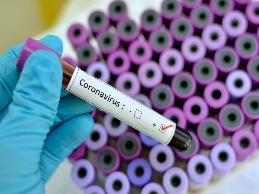Occasionally at JAN, we are contacted by a new organization or individual who wants to share with us their information and the work they do through a guest Blog. We were contacted by Adam Cook who has started the Website Addictionhub.org that focuses on resources to support individuals with a coexistence of a mental health condition and drug/alcohol addiction. He had read our Blog and asked to write an article about his work and a topic he feels is often insufficiently addressed, including in the employment arena.
We chose to do the Blog in a Q&A format. We thank Adam for contacting us about this topic and wanting to share this information with our customers as he develops both his site and its potential outreach.
1. Can you tell us about yourself, your background, and what inspired you to start the Website Addictionhub.org?
I am a pretty average guy with an above-average passion in regards to helping people find the resources they need to fight addiction. I became dedicated to this cause a few years ago when I lost a good friend of mine to suicide. He had been dealing not only with alcoholism, but also had been diagnosed with bipolar disorder. I believe that it was harder for him to fight his addiction battle because of the state of his mental health, and his addiction exacerbated his mental illness. He finally went into treatment, but afterwards he resisted finding a long-term program. Eventually he gave up hope, and I lost him.
I don’t want anyone else to feel the sorrow I have experienced after losing a life-long friend, nor do I want anyone to have to go through what he did. He wasn’t alone, but he felt like he was. I wish I had known more about the resources that were out there when he was alive. It is my goal to spread the word about addiction and places where individuals and families can get help. I want to encourage people to not try to do it on their own.
2. Can you talk a bit about the process you underwent for starting the Website and what your short, medium, and long term vision is for the site? You’ve included a crowdsourcing component. Can you talk about why you built-in this feature?
Initially, I had hoped to simply create a place where I could list organizations and other resources that could help people who are fighting addictions. As I began doing research, I realized even if I could compile a large amount of information, I needed to do what I have encouraged others to do in their own journey: ask for help.
Since the launch of the site, I have had people contact me with information that has been extremely helpful. I value first-hand feedback in regards to how addiction assistance has made a difference. My goal now is to continue building on the searchable database with input from others. In the long term, I would like to have more involvement from not only people who have gone through programs, but also from the treatment providers.
3. You state the mission for your Website is “…to help individuals, families, and health workers find support with issues relating to addiction. We locate and catalog addiction resources from around the Web.” Can you expand on this mission?
I take the resources that are shared through the site very seriously. I take the time to research any organization or Website that is submitted to make sure that the information is useful and the programs are legitimate. I think it is important for individuals who need help to be able to find a program that they can relate to and that they will stick with.
4. You emphasize on your Website the connections between mental health conditions and addiction. Can you talk more about this connection from your perspective and why you believe this is an important point to make?
I experienced first-hand someone battling with alcoholism as well as bipolar disorder. From the perspective of an uninformed outsider, it was often hard for me to distinguish what symptoms were from which condition. I believe that my friend started drinking to deal with his mental health condition, and that he faced even more challenges than most in finding a treatment plan that worked for him. Overall, mental health and addiction are two things that are very misunderstood by most. These challenges go beyond willpower and strength of character. They are serious medical conditions that often go hand-in-hand.
5. JAN addresses mental health conditions and addiction in the context of employment and accommodation situations. From your experience, can you talk about the specific impacts you feel these issues have for individuals in the workplace?
I believe one of the hardest things to overcome is the stigma put on recovering addicts and individuals with mental health conditions. These not only hold people back from seeking out treatment, but also can cause misunderstanding and mistrust from employers. If someone had a serious physical ailment such as cancer or an injury, it is acceptable for them to take time off to receive medical treatment or heal as needed. In the case of mental health or addiction, there are less accommodations given by employers, even though the conditions can be just as, or even more, serious.
When loss of employment does occur, it can trigger dangerous reactions. I have seen someone caught in a vicious cycle of despair where work stress contributes to symptoms and behaviors, and then those cause more issues at work.
In my research, I have determined that more employers are recognizing the importance of nurturing their employees’ mental health, but there are still a lot of hurdles.










